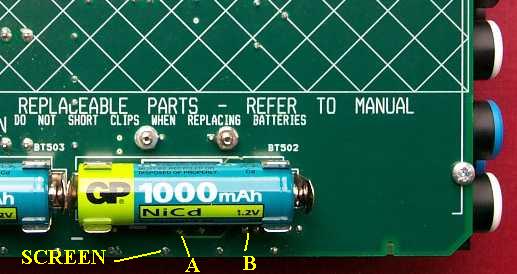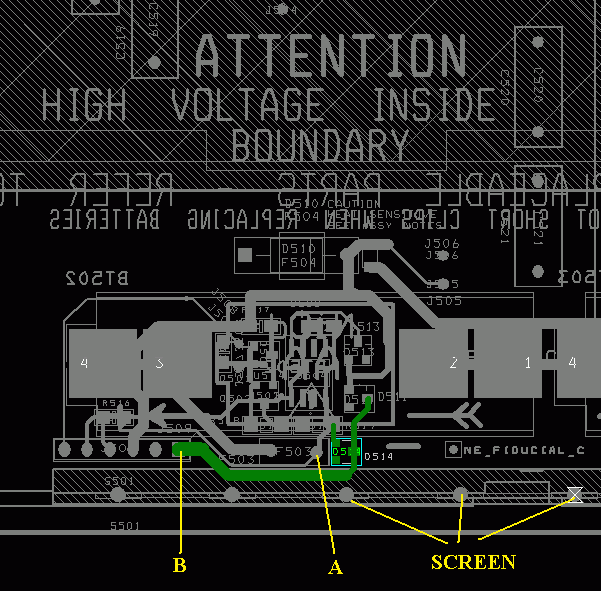Article ID: 061102sab
Last Reviewed: July 10, 2023
The information in this article applies to:
- Ranger Power Master PM3000 all versions.
Target Audience
This article is aimed at:
- Qualified Service Personnel for the Ranger Product Line.
- These instructions are specifically NOT for untrained end users.
Symptoms
All of the following:
- The PM3000 runs correctly when powered from the AC input or the DC charger.
- The screen goes blank immediately that power is removed.
- Without power present, the Logger cannot be started by touching the screen.
- Recorded data is lost when the power is removed.
Cause
This is usually due to one of the following:
- The Logger has been subjected to a shock, causing the batteries to move far enough within their retaining clips to go open circuit. The charge test will fail if this is the cause.
- The battery output diode “D514” has failed. The charge test will pass.
To run the charge test follow these steps:
a) From the Power Master start screen select: Continue.
b) From the Hook-up screen select Next.
c) From the Main screen select Configure.
d) On the Configure screen scroll down then select Utilities.
e) From the Utilities screen select Manage Battery.
f) On the Battery Management screen select Test Charge Circuit.
Resolution
- Unplug any voltage or current connections from the Logger.
- Remove the Logger board assembly from the case in accordance with the service manual.
- Visually inspect the batteries to ensure they are correctly placed in the center of the retaining clips and contact is made at both ends.
This picture shows the underside of a PM3000 board assembly.

This diagram shows the PCB layout viewing the board assembly from below with the input connector on the left hand side.
Using a DVM measure the voltage appearing on the locations indicated with respect to the screen.
If around 5 volts is present at the point marked “A” but no voltage is present at point “B” then the diode D514 has failed.
If no voltage is present at point “A” then one or more batteries are (probably) incorrectly seated in their clips and are open circuit.
References
None.

